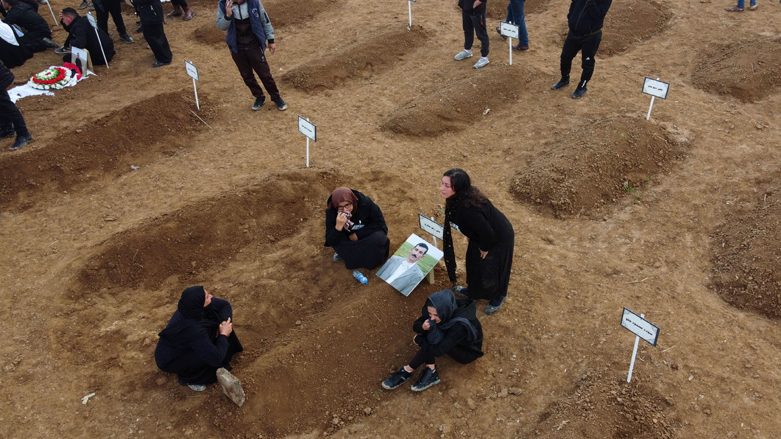New mass grave of ISIS victims found in Sinjar

ERBIL (Kurdistan 24) – On Mar. 24, a Yezidi (Ezidi) civil organization in Sinjar (Shingal) announced the discovery of a new mass grave of victims killed by ISIS.
Khairy Ali, the director of the Shingal office for the Yezidi Documentation Organization, said in a statement that "the cemetery was found in Hindana village, north of Shingal, and contains the remains of at least five individuals who were victims of ISIS in 2014."
Khairy indicated that his organization will protect the cemetery until it is studied and handled by the relevant authorities.
On Feb. 22 The UN Investigative Team to Promote Accountability for Crimes Committed by Da’esh, ISIS (UNITAD) began unearthing seven mass graves in the Yezidi-majority town of Sinjar.
Read More: UNITAD begins unearthing 7 mass graves in Sinjar
The 2014 ascendance of ISIS and its subsequent violent assault on Sinjar led to the displacement of hundreds of thousands of Yezidis. Most of them fled to the autonomous Kurdistan Region, while others resettled in neighboring countries or Western states.
Others were not as lucky and remained stranded in the warzone, where they were subjected to atrocities and mass executions at the hands of the extremist group for years. ISIS militants forced women and girls into sexual slavery; kidnapped their children; forced religious conversions; executed scores of men; and abused, sold, and trafficked women and girls across the areas they controlled in Iraq and Syria.
